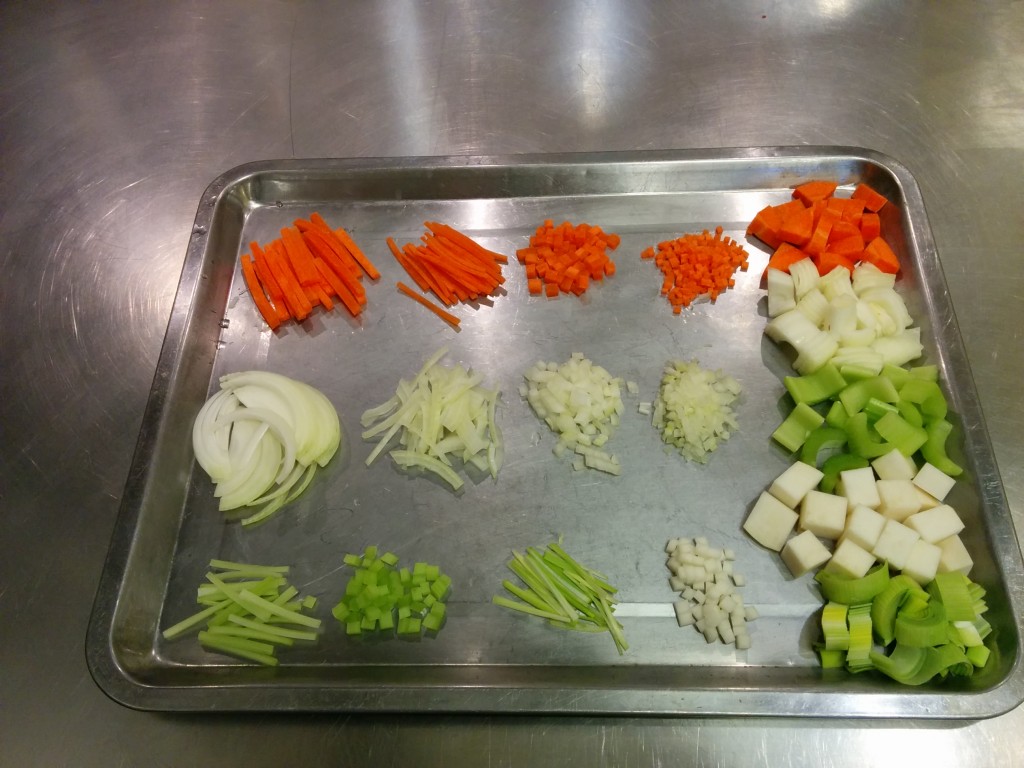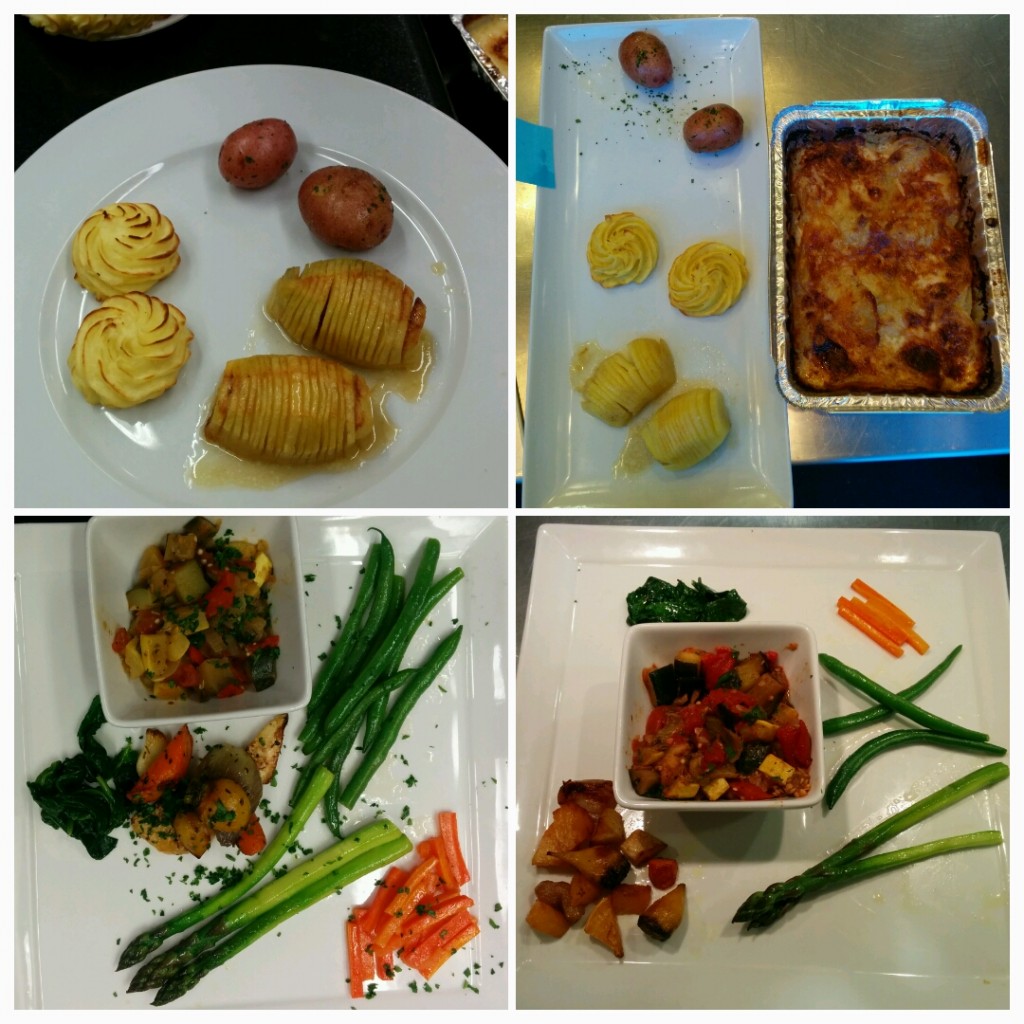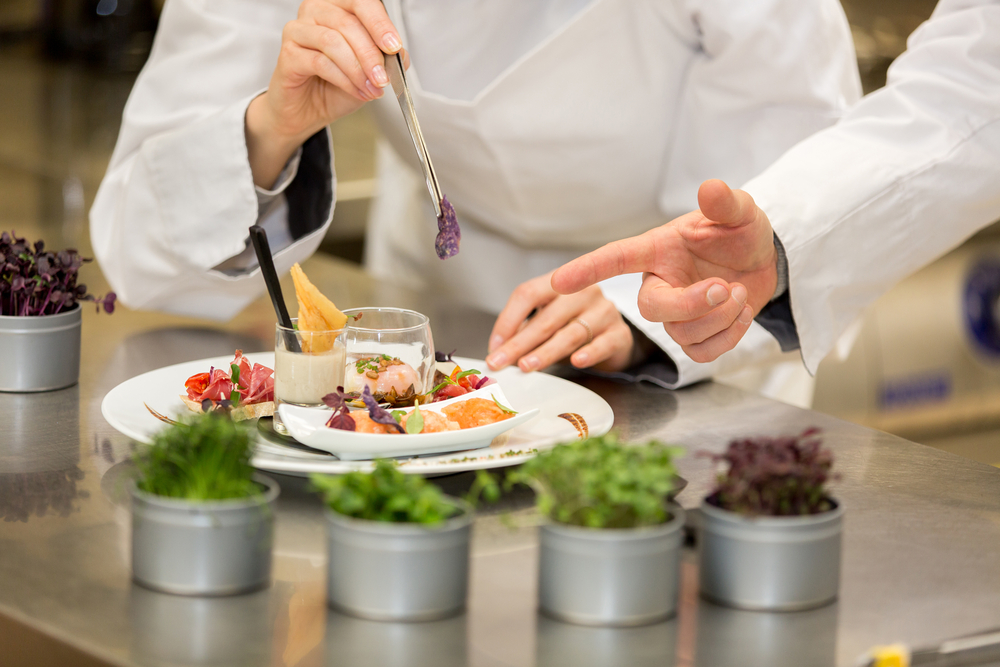I am going to culinary school! Yippee! This has been a l-o-n-g time coming. I actually wanted to go to culinary school after finishing my dietetics degree because food compliments nutrition so well. However, the timing wasn’t right (and I wasn’t ready). But this year I decided to finally take the plunge. One of the main motivators was the fact that I started teaching kids cooking classes (it’s great to get them when they’re young) and although I’ve been taking culinary courses at George Brown College for years, they were the non-industry graded courses (i.e. the ‘fun’ classes). I learned a lot about food but I wanted to kick it up a notch to make sure my skills and technique were legit so I signed up for the industry accredited courses. The great thing is that I’m able to take the courses at night so I can work during the day. Plus my classmates are awesome (that always helps).
I recently completed my first semester and I can honestly say that the industry accredited courses are a lot different than the ‘fun’ classes. They are designed to prepare you for the industry so they are way more intense. You must be punctual, efficient and have crazy multi-tasking/time-management skills – it can be overwhelming. In one of our classes, our knife cuts had to be so precise that we had to use rulers.

Each class, we have to replicate and prepare four to five different dishes for Chef to mark (Chef tastes everything that you make) and they have to be presented at the same time. If your dishes aren’t done at a certain time, you lose marks. If your bench is messy, you lose marks. If you under/over seasoned your food, you lose marks. The first week of lab, several of my classmates (including me) were running around like chickens with their heads cut off. But after several weeks of multi-tasking and working towards a deadline, we got use to it and aren’t quite as frantic. It is definitely good training.
There are some schools of thought that think you can learn how to cook on the job (this is true) and that you can’t simply rely on what you learn in school (this is also true). I personally think that the two compliment each other. It’s important to learn proper technique in school but you also have to be able to balance it with real world timelines and work environments. I can honestly say that the classes are preparing me for what the industry expects. I recently had a ‘working interview’ in a professional kitchen and would have been a ‘deer in the headlights’ if not for my culinary school classes.

One of the interesting things I’ve noticed is that people no longer assume that you’re going to work in a kitchen or open a restaurant when you tell them you’re in culinary school. The question I often get asked is “What do you plan to do with it?” I find this so refreshing. Food has become so ubiquitous in our society that a culinary education doesn’t necessarily mean you’re going to work on a line or open a restaurant (I think the Food Network has something to do with it.) There are a lot of people who go to culinary school because they want food to be part of their lives but they don’t want to necessarily become an executive chef.
For me, I want to gain food knowledge and skills to compliment my nutrition degree. I’d like to create and develop more food programs, cooking classes and workshops where dietitians/nutritionists work. But who knows what will happen. Right now, I’m still in school.
